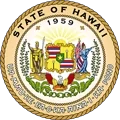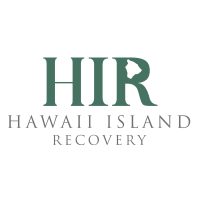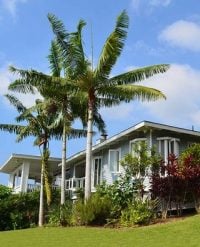Big Island Substance Abuse Council - Keaau High School
Drug Rehab Center in Keaau, Hawaii
The Big Island Substance Abuse Council – Keaau High School provides a comprehensive range of outpatient and residential services, utilizing evidence-based treatments and individualized care plans to help individuals overcome addiction and improve their quality of life.
About This Hawaii Facility
Big Island Substance Abuse Council - Keaau High School is a non-profit rehab facility located in the picturesque town of Keaau, Hawaii. The center specializes in treating individuals struggling with mental health disorders and substance addiction, providing a comprehensive approach to recovery in a supportive environment.
• Comprehensive care: The facility offers a wide range of services, including outpatient and residential treatment for adolescents, adults, families, and couples.
• Evidence-based treatments: The center utilizes proven therapies such as cognitive behavioral therapy (CBT), family therapy, motivational interviewing, and relapse prevention to help clients achieve lasting recovery.
• Individualized treatment plans: Each client receives a personalized care plan tailored to their unique needs, ensuring the most effective path to sobriety and improved quality of life.
• Highly qualified staff: The team at Big Island Substance Abuse Council - Keaau High School consists of experienced psychiatrists, therapists, counselors, and medical professionals dedicated to providing the highest quality of care.
Big Island Substance Abuse Council - Keaau High School is accredited by the Hawaii Department of Health and licensed by the Commission on Accreditation of Rehabilitation Facilities (CARF). The center is also a member of the National Association of Addiction Treatment Providers (NAATP), demonstrating its commitment to excellence in the field of addiction treatment.
The facility treats a wide range of substance abuse issues, including alcohol, drug, and prescription medication addiction. They offer various levels of care, such as outpatient and residential treatment, to ensure that each client receives the appropriate level of support and guidance throughout their recovery journey.
Genders
Ages
Modality
Additional
Accreditations
State License
SAMHSA
Conditions and Issues Treated
Opioid addiction is the result of repeated use, or abuse, of opioid drugs. It is recommended for people who are dependent on opioids, or who have a high risk for dangerous health concerns, to seek professional treatment. Treatment plans usually include behavioral therapy and medication-assisted treatment.
Opioid drugs include: fentanyl, heroin, methadone, oxycodone, and oxymorphone.
Opioid addiction treatment is beneficial for:
- People who have a history of severe withdrawal.
- People with a high risk for dangerous health concerns.
- People having difficulty overcoming opioid addiction on their own.
Levels of Care Offered at Big Island Substance Abuse Council - Keaau High School
This center offers a variety of custom treatment tailored to individual recovery. Currently available are Aftercare Support, Drug Rehab, Outpatient, with additional therapies available as listed below.
The outpatient programs in Keaau, HI are for those addicted drugs or alcohol. The goal of the outpatient rehabilitation program is to make them stop abusing drugs or alcohol, reduce drug use or addictive behaviors, and become entirely sober. It is generally required to attend the outpatient program for 10-12 hours every week.
Patients can be administered on-the-spot medication to ease withdrawal symptoms such as anxiety, increased heart rate, and even depression. Groups such as Alcoholics Anonymous (AA) and Narcotics Anonymous (NA) can be used as a part of outpatient treatment to help maintain sobriety.
Aftercare support is a service many addicts need to ensure their success at recovery. This service usually includes one-on-one or group therapies, assistance from a sponsor and other types of help designed to make sure the patient continues living a life free from drugs.
Patients also may require medication to help them battle addiction. Some people have been able to successfully recover without additional medications, but others have found that they need help during their transition. Long-term, the patient must take the initiative to attend meetings and receive help from other addicts in recovery.
Therapies & Programs
People in addiction recovery can benefit from individual therapy. This type of therapy involves meeting with a therapist one-on-one. This allows for a personal and trusting relationship to be built so that the patient can be truly themselves and express any emotions they feel. Individual therapy leads to greater understanding and peace about your triggers for addiction and coping strategies to prevent relapse.
Couples therapy for drug addiction is based on the belief that addiction is a family disease. Everyone involved with an addict, not just the addict themselves, is affected by their behavior and the changes the addict goes through. The relationship also changes the addict’s significant other and has likely picked up some codependent behaviors. Codependency is a term used to describe a person obsessed with another person and their needs and feelings while neglecting their own. Addicts are usually people-pleasers, so it is understandable how one can become codependent in relationships with addicts.
Family therapy is a type of group problem-solving that aims to improve communication and relationships between the patient, their family, and sometimes friends. The main goal of family therapy for drug addiction is to create an environment where communication can occur without judgment, hostility, or blame. The therapist is with the family as they learn to communicate with each other differently, especially with the addict when s/he is using.
Group therapy sessions are held in rehab facilities, clinics, churches or community centers that offer drug addiction treatment. People who attend these groups are encouraged to voice their feelings and support other addicts in recovery. This helps group members strengthen their own recovery program while cheering on others who are struggling with sobriety.
Group therapy sessions provide recovering addicts with a chance to cope with everyday situations that many face. Group therapy sessions are held in rehab facilities, clinics, churches or community centers that offer drug addiction treatment.
People who attend these groups are encouraged to voice their feelings and support other addicts in recovery. This helps group members strengthen their own recovery program while cheering on others who are struggling with sobriety.
If you’re looking for addiction treatment, it’s important to find a facility that offers trauma therapy. This type of therapy helps people process and understand the past traumas that have led to their addiction. Trauma therapists will work with clients to help them understand their past and present relationships and show them that they are worthy of love. This therapy is typically done using visualization, discussion, and writing down thoughts and feelings.
Trauma Therapy is a form of therapy that involves working with a patient to help them process and understand the past trauma(s) in their life. This therapy is typically done using techniques such as visualization, discussion, and writing down thoughts and feelings. The main goals of trauma therapy is to help clients express their emotions and talk about what they are feeling.
Cognitive Behavioral Therapy (CBT) helps addicts identify faulty, negative thinking so that they can work together with the therapist to find healthier ways of thinking. CBT focuses on specific aspects of each person’s thinking, feeling, physiology, and behavior. It aims to identify specific problems in these areas, and create a personalized treatment strategy.
Life Skills Services offered at Big Island Substance Abuse Council - Keaau High School assists addicts in their recovery by teaching them healthy coping mechanisms that will aid them in becoming sober, focussing on helping people enter into, and maintaining long-term sobriety. Big Island Substance Abuse Council - Keaau High School provide Life Skills Services at varying levels of intensity, specific to the needs and requirements of each patient.
Benefits of Life Skills Services offered at Drug Treatment Centers in Hawaii:
- Restores hope and empowerment — Helps addicts believe that recovery is possible and instills a new confidence in their ability to achieve a positive, drug-free future
- Enhances family involvement — Encourages families to get involved in the recovery process and supports their understanding and encouragement of healthy behavior.
- Increases patient’s compliance — Helps patients take responsibility for and ownership of their recovery and encourages continued progress
- Reduces relapse rates — Encourages long-term abstinence and emphasizes the importance of establishing sober support systems.
Big Island Substance Abuse Council Associated Centers
Discover treatment facilities under the same provider.
- Big Island Substance Abuse Council - Kailua Kona in Kailua Kona, HI
- Big Island Substance Abuse Council - Ka Wahi Ola Hou in Hilo, HI
- Big Island Substance Abuse Council - Hilo in Hilo, HI
- Big Island Substance Abuse Council - Connections in Hilo, HI
- Big Island Substance Abuse Council - Laukona House in Hilo, HI
Learn More About Big Island Substance Abuse Council Centers
Additional Details
Specifics, location, and helpful extra information.
Keaau, Hawaii 96749 Phone Number(808) 969-9994 Meta DetailsUpdated April 15, 2024
Staff Verified
Patient Reviews
There are no reviews yet. Be the first one to write one.
Keaau, Hawaii Addiction Information
Hawaii has one of the highest rates of drug abuse in the nation. Methamphetamines and marijuana are the most common drugs involved in drug-related crimes in Hawaii. The state loses $500 million every year due to methamphetamine abuse, according to the Hawaii Meth Project. More than 1 million prescriptions for prescription drugs are given out every year.
In Keaau, Hawaii, drug addiction is a significant problem. 4,574 people in Keaau were dependent on abusing alcohol, which accounted for about 3.8% of the population of the city. Cocaine is the 2nd most commonly used illicit drug in the area. 1 in 10 people will abuse prescription drugs at some point. No matter your particular needs, there is a drug treatment facility in Keaau, HI, that can help you get sober.
Treatment in Nearby Cities
- Kailua Kona, HI (62.9 mi.)
- Waikoloa, HI (54.3 mi.)
- Kapolei, HI (229.4 mi.)
- Kahuku, HI (237.0 mi.)
- Kailua, HI (214.7 mi.)
Centers near Big Island Substance Abuse Council - Keaau High School
The facility name, logo and brand are the property and registered trademarks of Big Island Substance Abuse Council - Keaau High School, and are being used for identification and informational purposes only. Use of these names, logos and brands shall not imply endorsement. RehabNow.org is not affiliated with or sponsored by Big Island Substance Abuse Council - Keaau High School.










